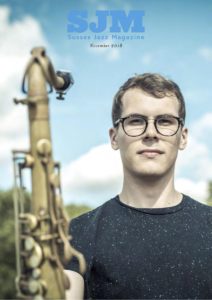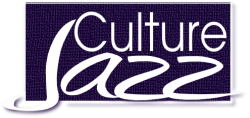|
ELLIOT DEUTSCH/Make Big Band Great Again: Pretty much the definition of a working musician, Deutsch didn't set out to make a political record but looking a things from an artist's perspective, that's what's come about. Showing that keeping our sense of humor is an important step in getting through things, his titles speak for themselves. As does the music. There's no politics in these jazzbo grooves that show how important spirit is since big band basically hasn't been self sustaining since...? The chops are there and any straight ahead jazzbo will know this is the stuff. Well done.
(Soundwings 110218) CHRIS SPECTOR, Editor and Publisher Original review
0 Comments
 Make Big Band Great Again has received a glowing review in the UK publication Sussex Jazz Magazine. Although in some quarters, jazz has been regarded as a subversive form of music, big band music has not been considered as a vehicle for protest. Until now. When he started to write this album, Elliot’s original plan was to pay tribute to his hometown, Los Angeles. But events overtook him. He started to experience a combination of hopelessness and bewilderment. The first of the five tracks is a short, respectful, big band arrangement of the patriotic tune America The Beautiful. So far, so good. The next three tracks, all up tempo, hang together, like three movements of a single piece. Their titles hint at the underlying inspiration/ desperation, generated by President Trump’s antics. Fake News refers to Mr. Trump’s repeated attempts to discredit any source of reliable reporting. The trumpet soloist is Mike Rocha. Repeal and Replace refers to Mr. Trump’s attempts to dismantle the progress made under President Obama, while simultaneously presenting himself as a man of the people. In particular, dismantling the Affordable Care Act, on which the less well-off depend. Will Brahm plays the guitar solo. The Great Wall, inspired by the anti-immigrant rhetoric especially in relation to Mexico, includes Dan Kaneyuki’s alto solo. Despite its name, the final track Pink Sunset, a ballad, is not a reference to revoking LGBT+ rights, but rather the colourful evening skies caused by chemical smog. Atmospheric flutes and trumpets introduce a trombone feature including Bob McChesney soloing. I particularly enjoy Elliot’s writing a capella passages in these tracks. Without being aware of the background to this album, the casual listener would consider it as an example, a highly professional example, of twenty-first century big band jazz with late twentieth century popular music influences. I recommend it. Patrick Billingham Original review (page 43)  My first French language CD review! "Make Big Band Great Again" received (what I've been told is) a great review by CultureJazz.fr. If you can read French enjoy: Malgré sa jeunesse Elliot Deutsch a déjà glané quelques récompenses et il semblerait que cela soit mérité. C’est du moins notre avis. Basé à Los Angeles, il a enregistré cette petite suite (une vingtaine de minutes) dans les studios Capitol ; pourquoi se priver, hein ? Bien que la casquette rouge et le titre de l’album positionnent clairement la démarche anti Donald, ce n’est pas un album à la musique révolutionnaire. Mais son putain d’orchestre ne fait pas semblant de swinguer, c’est le moins que l’on puisse dire, et les solistes sont tous monstrueux de justesse et d’efficacité. Ca sonne et ronronne comme une machine west coast huilée au poil. C’est arrangé avec une science harmonique bien réelle et l’ensemble se promène à des hauteurs qui tutoient les anges (c’était facile). Si monsieur Deutsch pouvait sortir de leurs tombes respectives Julie London ou Jimmy Rushing, Dinah Washington ou Ella et Johnny hartmann, ce serait terrible. Une faute de goût ? On se serait volontiers passé de la minute introductive consacrée au titre « America the beautiful ». Ca jette un doute… Yves Dorison Original review KCXL Radio Interview Joe Dimino had me as a guest on his radio show, Neon Jazz, on KCXL in Kansas City Missouri. We talked about my early years as a young player and about my influences in writing my new, politically themed album. Interview with Elliot Deutsch on popular blog
The following is an interview I did with a popular jazz blog about my new album, career, musicality, etc. Jazz interview with jazz composer & band leader Elliot Deutsch. An interview by email in writing. JazzBluesNews.Space: – First let’s start with where you grew up, and what got you interested in music? Elliot Deutsch: – I grew up in Chatsworth, CA, a suburb of Los Angeles. My father was (and still is) a NASA scientist by-day and a dixieland musician by-night. I grew up associating jazz music with recreation. My father often took me to his rehearsals and to weekend jam sessions. JBN.S: – What got you interested in composing for big band? What teacher or teachers helped you progress? ED: – As a trumpeter, I played in big band starting in high school. I think I was always attracted to the idea that I was somehow in control of the sound of the band. Lead trumpet leads the band’s interpretation of the written music (along with the drummer and the lead alto saxophonist). I wrote my first arrangement for big band when I was in graduate school at Cal State Long Beach. When I heard the band playing my notes I was hooked. During college, I studied arranging with Jeff Jarvis who is best known for his excellent educational-level pieces. Since graduating in 2008, I have picked up lessons here and there with Kim Richmond, John Clayton, Patrick Williams, and Chris Walden. The best catalyst for progress, however, is playing my pieces with a live band. It is immediately evident what works well and what needs work. I always record my early readings and try to listen back objectively. JBN.S: – How did your sound evolve over time? What did you do to find and develop your sound? ED: – When I first started writing, all of my pieces were in the “classic” big band style: swing, with sax soli, shout chorus, etc. I think that I have progressed the way that I have because of my profound respect for the craft of big band arranging. Only in the past few years have I felt comfortable breaking convention and writing in a contemporary style. For my newest project “Make Big Band Great Again” I leaned heavily on modern grooves and high energy composition, while utilizing traditional orchestration. JBN.S: – What’s the balance in music between intellect and soul? ED: – To me, the two do not conflict with one another. Intellect, musically speaking, is in the music’s complexity. For jazz music, it is often in the harmony. For large ensemble jazz, the intellect can also be in the texture, in creative ways to utilize the timbres of various instruments. Soul, on the other hand, is all about attitude. Any music, simple or complex, can have limitless soul. JBN.S: – There’s a two-way relationship between audience and artist; you’re okay with giving the people what they want? ED: – Yes and no. My approach when writing music is to write the music that I would like to listen to. Hopefully I will find an audience with the same sensibilities. JBN.S: – How can we get young people interested in jazz when most of the standard tunes are half a century old? ED: – I think that young people would really like jazz if they can hear the new, groovy stuff… let them listen to Kamasi, Thundercat, RH Factor … the music that might be more accessible to them. Forcing young people to listen to Coltrane would be akin to expecting young people to understand Hendrix without any context when you can easily get them started with the Foo Fighters. JBN.S: – Who do you find yourself listening to these days? ED: – I spend a lot of time watching concert recordings on YouTube. It is amazing that I can watch Thad, Buddy, Count, you name it, playing live gigs from my sofa. Interview by Simon Sargsyan Original interview |
Contact
For booking information or to purchase sheet music, contact Elliot Deutsch at
[email protected]
(310) 339-3392
[email protected]
(310) 339-3392

 RSS Feed
RSS Feed